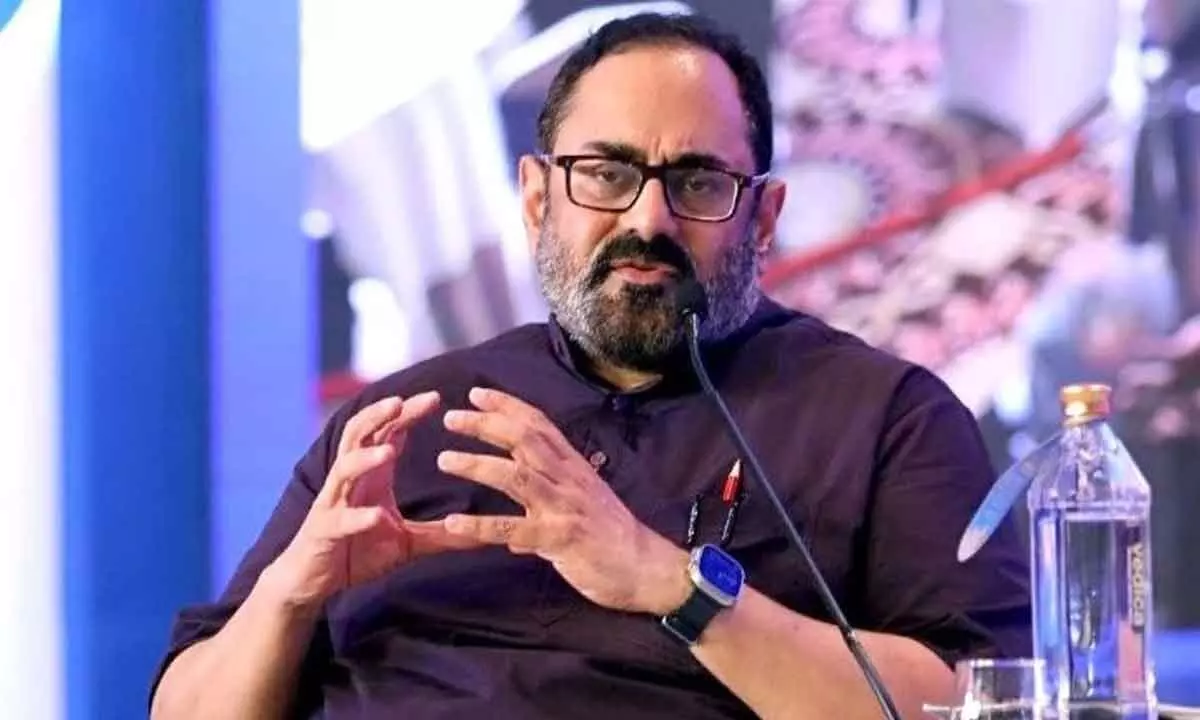IT Minister will support data development for AI models

The India datasets platform will be one of the largest and most diverse collections of anonymized datasets to train multi-parameter AI models.
Rajeev Chandrasekhar, Union Minister of State for Information Technology, said seven working committees submitted their official report on the Centre's AI strategy in India. The latter includes a multi-year roadmap to develop an Indian dataset platform to collect, organize and build fundamental artificial intelligence (AI) models using anonymized data, and also locally develop an AI computing infrastructure in a public-private partnership (PPP) model.
Addressing the media after the presentation of the report, Chandrasekhar said, "Two key areas of the India AI programme, apart from support for startups and a very comprehensive skilling programme, are the India datasets platform, and the India AI compute platform. The latter will be a public-private partnership project that will create substantial graphics processing unit (GPU) capacity for startups and researchers to train AI models. The India datasets platform will be one of the largest and most diverse collections of anonymized datasets to train multi-parameter AI models. India AI will also support the development of AI chips in partnership with the Semicon India programme."
Around April 16, many media outlets reported that while several prominent universities and institutes in India are working on creating generative AI capabilities in the local language in a wide range of applications, the lack of computing has challenged researchers in creating large-scale AI Models. The lack of structured data available, especially in local Indian languages, is another challenge.
Chandrasekhar highlighted that according to the India AI report, the Center is currently undergoing consultations for the draft National Robotics Strategy, which opened for industry consultations on September 4 and will accept comments until the 31st. October. Additionally, the scope for scaling up AI data sets, monetization and regulation of AI and related technologies will fall within the ambit of the upcoming Digital India Act, which Chandrasekhar says is "on the verge of starting consultations."
"The formal India AI report lays out what will be the fulcrum of the India AI strategy. The road map is not just about generative AI, but is a deep, multi-year road map to make India AI an enabler of India's $1 trillion digital economy goal," he said.
He added, "It will be deployed in real-life use cases that span across agriculture, healthcare, education, fintech, cyber security, governance through digital public infrastructure, and languages through the Bhashini program. We believe AI can have a transformational effect in these areas, and catalyze the startup ecosystem that is already fuelling Digital India."
"An important application of AI is in industry 4.0 and robotics—here, we've released the draft National Strategy for Robotics, for public consultation. This is open to startups, researchers, enterprises, and manufacturing companies. In a sense, this completes our strategic planning for IndiaAI," he added.
However, the Centre is not looking to regulate the datasets themselves, but only the end-applications instead, Chandrasekhar said. “The regulation of emerging technologies, and technologies in general, will be done by the Digital India Act. There, we have laid down all guardrails and principles that are to be followed by startups and innovators that deploy any emerging technology—including but not limited to AI. It is not about datasets being filtered—it is about what the datasets are used for. Regulating datasets does not prevent AI models from causing harm."








